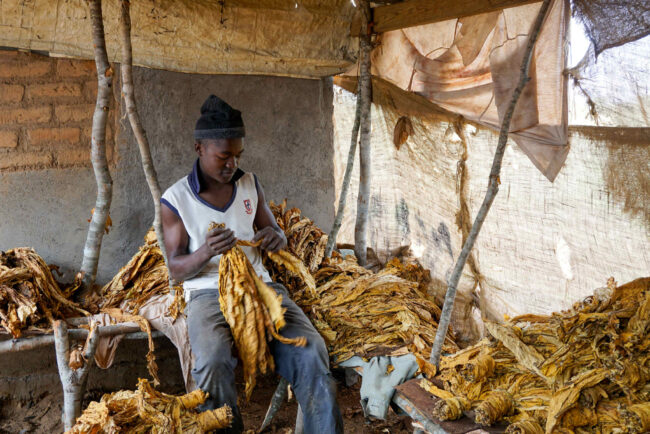HARARE, ZIMBABWE — Zimbabwe’s tobacco sector was once on the brink of collapse. Now, it’s booming again. Last year alone, it earned the country close to US$1 billion in revenue.
But though the crop is one of the country’s top exports and production has soared, small-scale contract farmers say they see little profit due to restrictive financing agreements.
The tobacco boom, farmers say, is keeping them in debt.
Gift Ngoma is among them. When he lost his clerk job eight years ago, tobacco farming was the only way he could feed his family. But fertilizer, seeds and labor proved expensive. Even money from the few cows he sold wasn’t enough.
Like many rural Zimbabweans, he’d gotten land — about 3.5 hectares (9 acres) — through traditional tenure. But those who secured land that way often lack a title deed. For Ngoma, formal credit was out of the question.
Ngoma knew of local farmers who had entered agreements with private companies. The deals looked good at first: Each planting season, a company provided farmers with seeds and fertilizer on credit. They’d offer technical support throughout the season. In return, farmers sold enough of their crop to the company and used part of the revenue to cover what they owed.
Ngoma signed on with Premium Leaf Zimbabwe, a subsidiary of Premium Tobacco — a global company headquartered in Dubai.
The company provided him with seeds and some money for labor. Once harvest came, he sold enough tobacco to the company to pay off his debt. But over time, he says, this agreement came to feel like a trap. The seeds and other inputs are overpriced, he says, and there’s little money left over to find true success as a farmer.


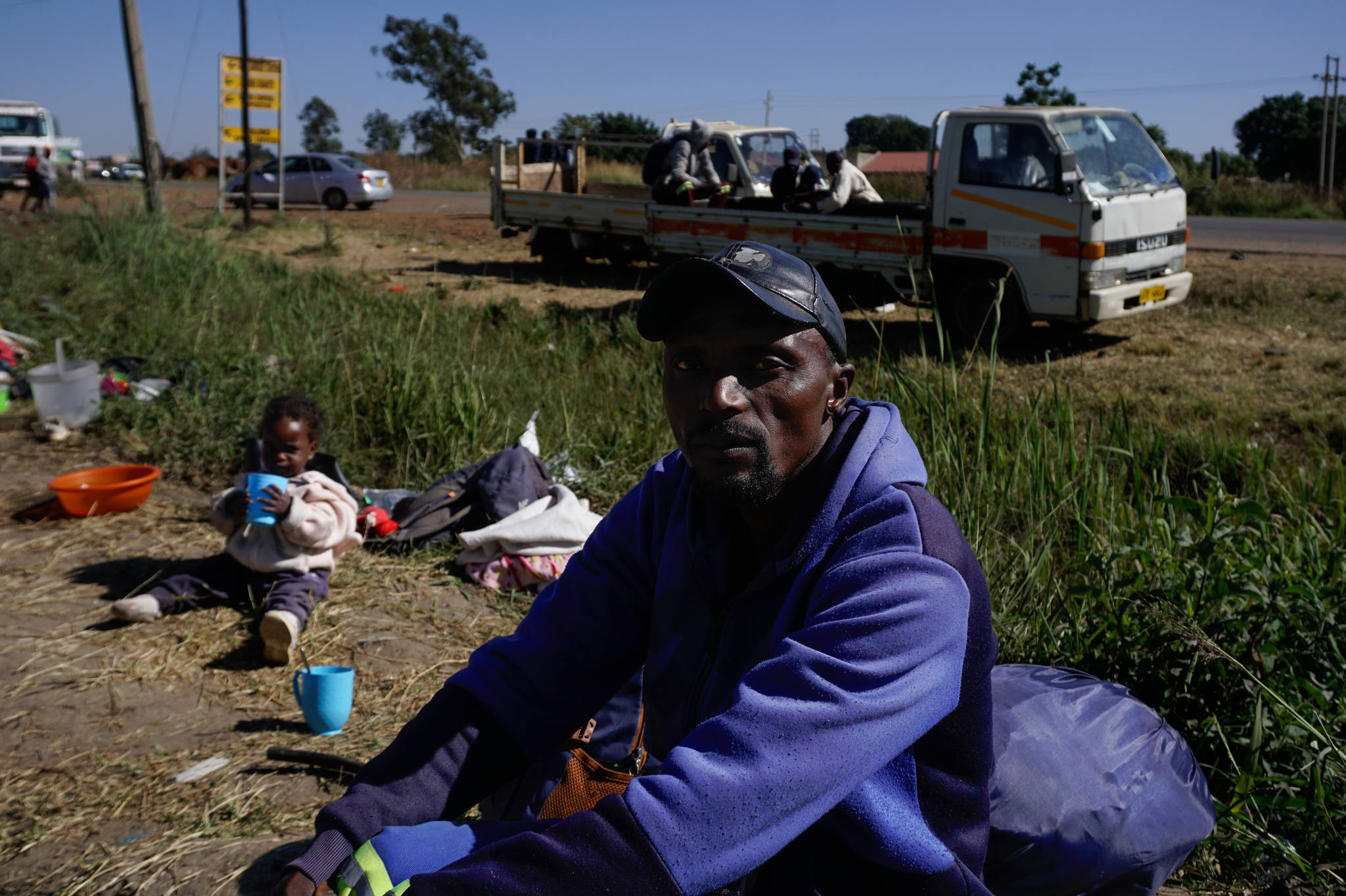
Thin rewards
More than 100,000 small-scale tobacco farmers in Zimbabwe have entered into contracts with tobacco companies, according to data from the Tobacco Industry and Marketing Board, a statutory body that oversees tobacco production in the country.
The contracts — heavily financed by companies such as British American Tobacco and Tian Ze (China Tobacco) — now support over 95% of Zimbabwe’s tobacco production.
That production has rebounded from just 44 million kilograms in 2006 to 232 million kilograms in 2024. The industry brings in hundreds of millions of United States dollars each year and contributes nearly 10% of Zimbabwe’s gross domestic product. It accounts for 30% of all exports and over 50% of agricultural exports. In 2024, Zimbabwe was the world’s third-largest exporter of raw tobacco, accounting for 10% of global exports, behind Brazil and India.
But smallholding farmers don’t feel that success. In December 2024, the government announced plans to issue title deeds to beneficiaries of the land reform program, which would give farmers a chance to use their land as collateral and rely less on contract farming. But for now, many still rely on tobacco contracts.
“We are in a cycle of oppression,” Ngoma says. “There is poverty in contract farming. It’s as if we are laborers on our farms.”
When Global Press Journal reached out to Premium Leaf Zimbabwe for comment, they said it was the company’s policy to “protect the privacy of our farmers and operational integrity.” Tian Ze and British American Tobacco did not respond to several requests for comment.


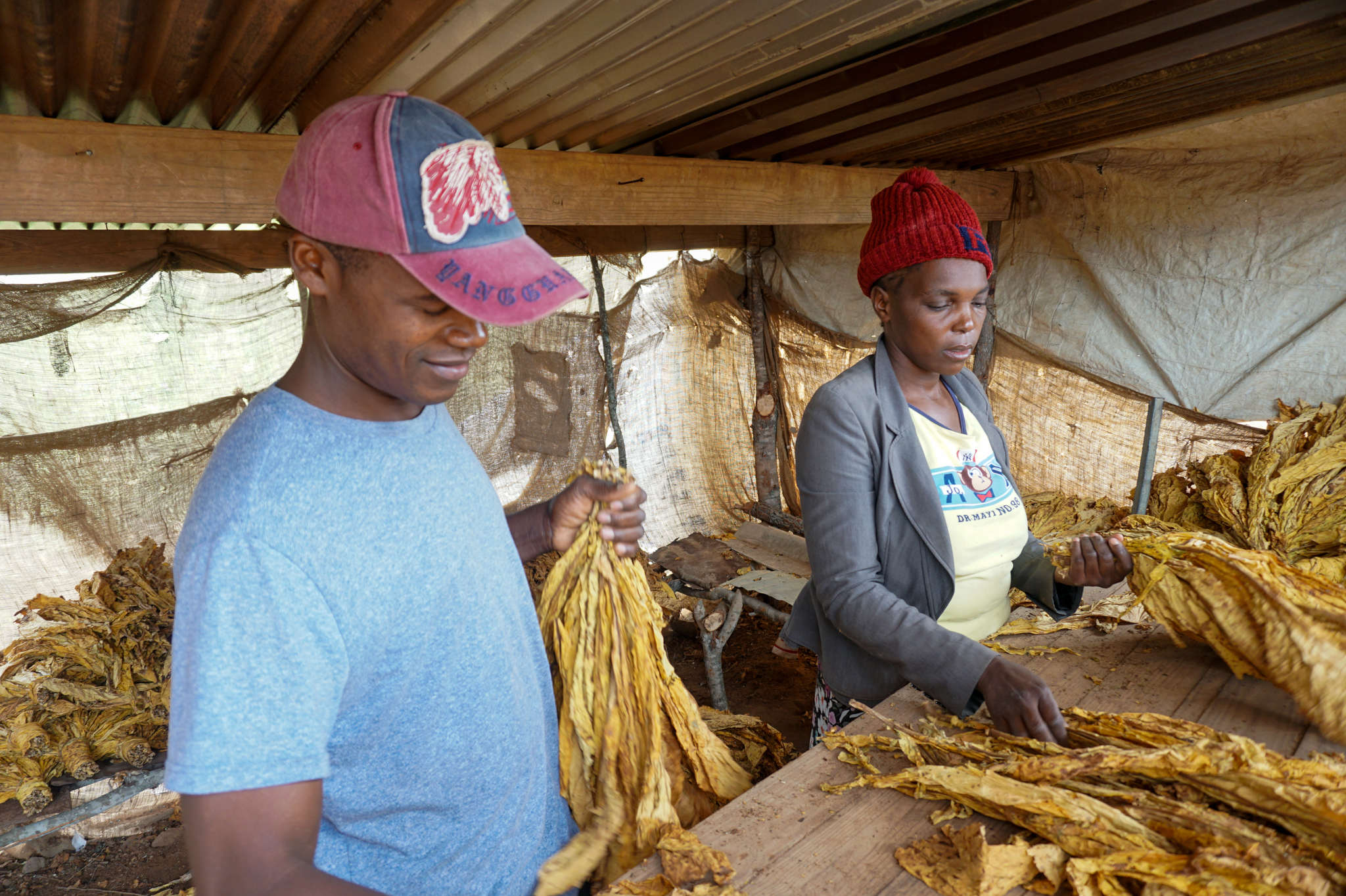
The land link
Zimbabwe’s shift to contract farming has roots in a wider story of land reform.
At independence in 1980, white Zimbabweans — who made up less than 2% of the population — controlled nearly half of all agricultural land. The majority black population was confined to degraded, overcrowded communal areas.
In 2000, then-President Robert Mugabe launched the controversial Fast Track Land Reform Programme. The government redistributed millions of hectares of land from about 6,000 large, white-owned farms to more than 168,000 black-owned farms, according to a Human Rights Watch report.
The reforms were rushed, controversial and violent, but they brought a new agrarian structure. Tobacco, at the time one of the most valuable crops and dominated by white-owned farms, shifted to small-scale operations by the new landowners.
But the new generation of farmers didn’t have access to traditional bank credit since they didn’t hold deeds to their land. Tobacco production dropped dramatically, from over 197,000 tons in 1998 to about 44,000 tons in 2006.
Farmers needed support, and into the vacuum stepped contract schemes, mostly by Chinese agribusinesses such as Tian Ze. They supplied seeds, fertilizers and technical support in exchange for crop guarantees, price control and access to global markets. Ultimately, those contracts played a key role in the post-reform tobacco boom.
‘We continue to be dependent’
Contract schemes now dominate Zimbabwe’s tobacco farming, says Emmanuel Matsvaire, acting chief executive officer of the Tobacco Industry and Marketing Board. In the 2024-25 season alone, the board recorded a total of 106,555 small-scale growers, he says, and about 89% of these are contract farming. In the 2025 season, the board licensed 43 companies to contract tobacco farmers.
The country’s economy has long struggled and “local financing is generally limited,” Matsvaire says. These companies fill the gap.
But farmers say the fine print works against them.
Seeds and fertilizer are overpriced, Ngoma says. For half a hectare, he receives seven bags of fertilizer for US$65 each. At the shops, the same bag costs about US$40. Many farmers don’t have ready cash to buy directly from shops, so they rely on private companies to provide fertilizer and other inputs, even if it means paying more when harvest comes.


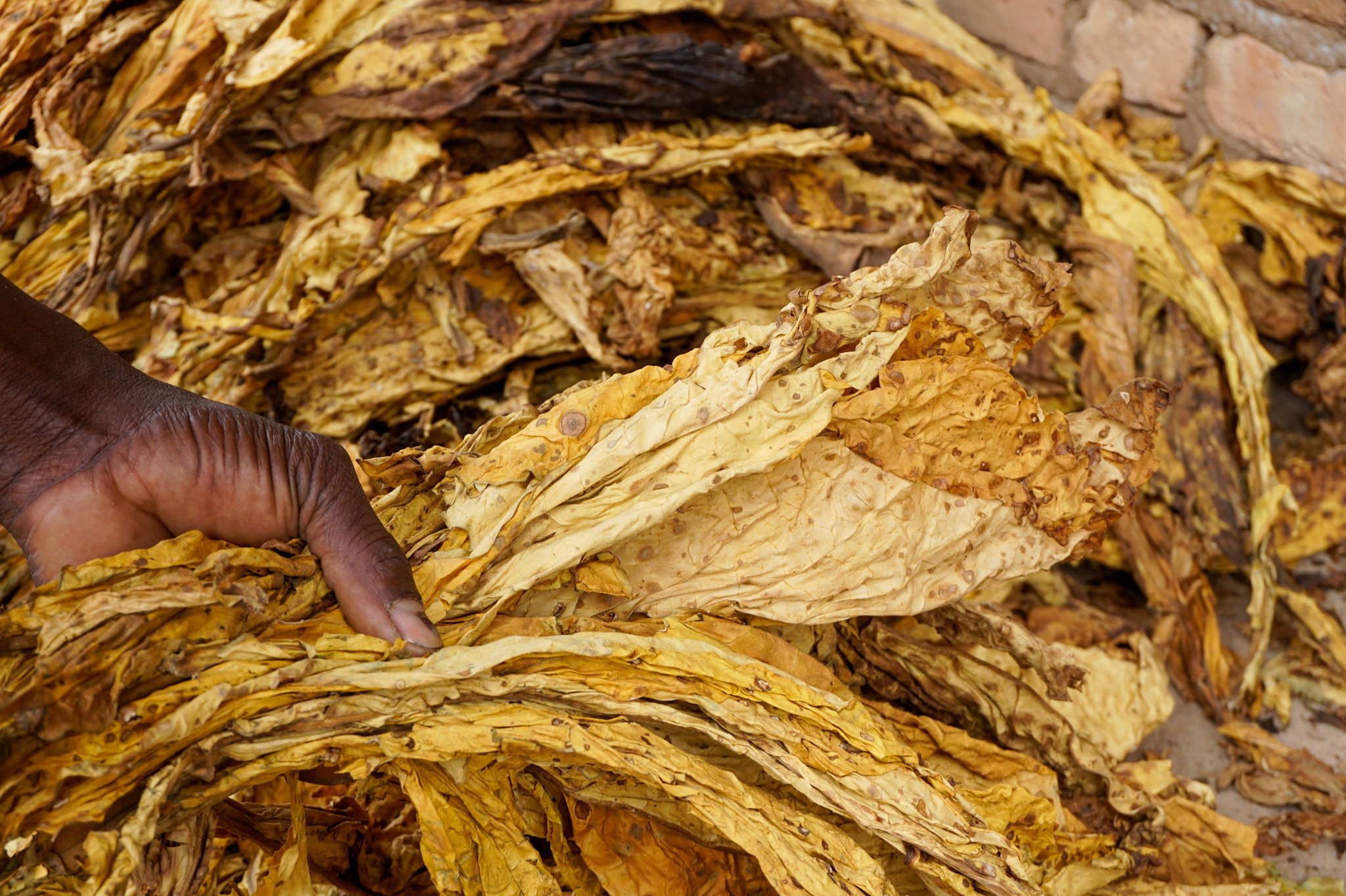
“Because of poverty, we continue to be dependent,” Ngoma says.
Once contract farmers pay back the debts, very little is left. In some cases, the total earnings don’t even cover the debt, Ngoma says, which forces them to grow tobacco for the same company the next season.
The companies control the whole process, including land use, Ngoma says, adding that at times they bring in agricultural experts who dictate seed types, planting times and farming methods, completely disregarding local farming knowledge.
Peter Neshumba, 36, began contract farming for Premium Leaf Zimbabwe in 2024. He says these companies go as far as controlling whether farmers can plant anything else. They want full devotion for their crops, he says. “Until harvest, the land essentially belongs to them.”
If a farmer doesn’t stick to the rules, the company might refuse to buy their crop or leave them without a contract the next season, he says.
A contract analyzed in a 2023 study in Oikos, a journal published by Zimbabwe Ezekiel Guti University, shows just how tobacco contracts lock small-scale farmers into risky debt. The 2019-20 Tian Ze contract required farmers to repay loans before seeing any profit, even requiring some to put their property on the line as collateral.
Undoing land reforms
These arrangements undermine Zimbabwe’s land reforms, says George Seremwe, the president of the Zimbabwe Tobacco Growers Association. The reforms were meant to redress colonial imbalances, but contract farming introduces new vulnerabilities for small-scale farmers as they cede control of their land to contracting companies.
But Nelson Marongwe, an independent land expert who has researched tobacco farming and land rights, doesn’t think so. The contracts are valid, he says, and address a production gap.
But it needs to be for a limited period, he says, as there is a risk of farmers losing autonomy and companies abusing their bargaining power.


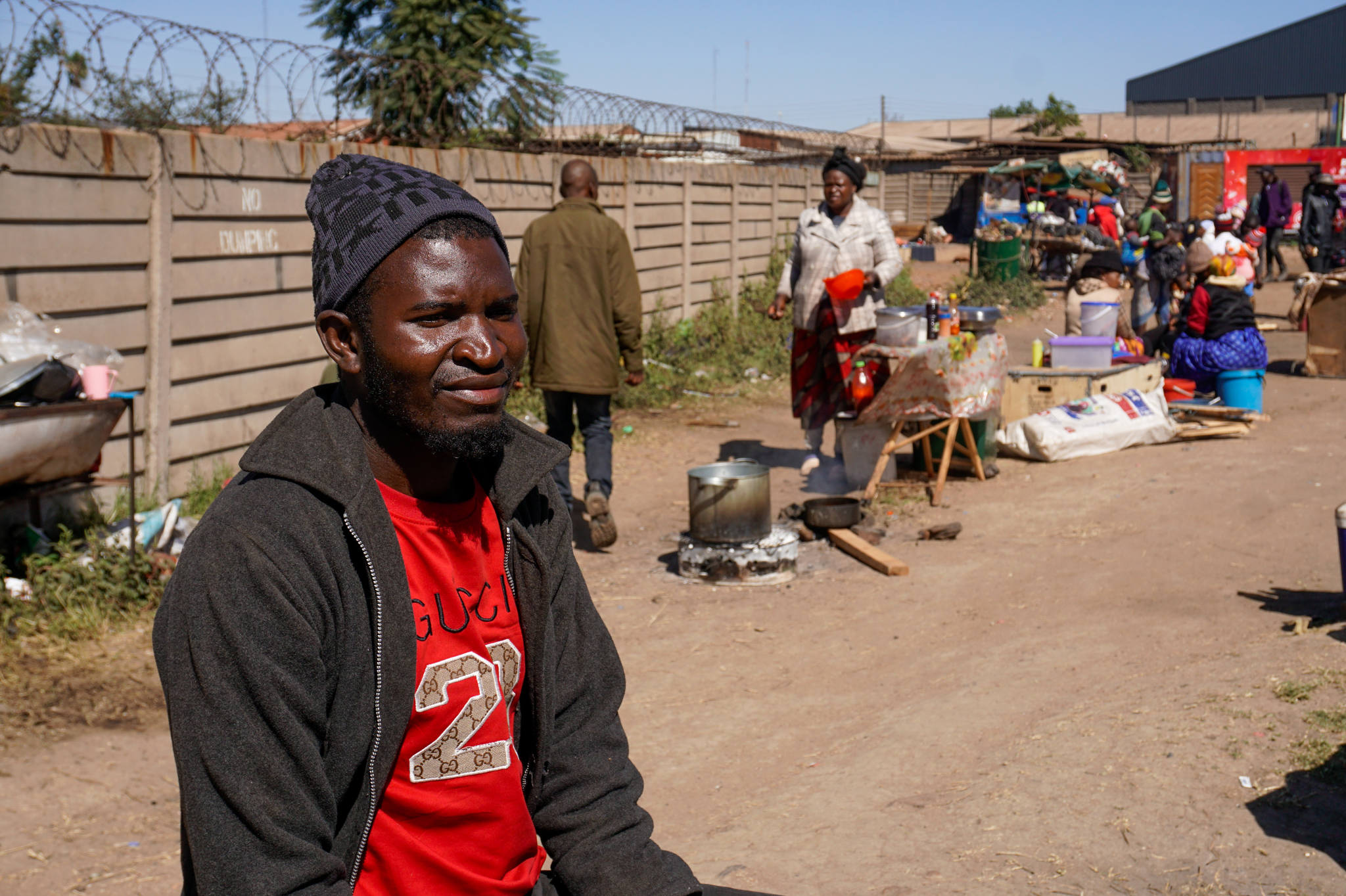
‘I feel used’
The tobacco board is trying to make these arrangements fairer to farmers, Matsvaire says. The government is implementing a framework to ensure farmers receive a fair share of profits, receive inputs in time and aren’t burdened with overpriced or substandard inputs. The framework will also set a minimum input package for farmers.
Matsvaire adds that this farming season, the Reserve Bank of Zimbabwe has mandated that tobacco farmers retain 70% of their earnings, in US dollars to protect them from exchange-rate losses.
But Ngoma says other issues, like land control and alternative financing methods, still need to be addressed.
One solution, Marongwe, the land expert, says, is to secure rural land rights for all farmers, which would expand access to other financing options.
Seremwe says farmers need fairer terms, but the solution is not to abandon contract farming, since the country needs the foreign investment.
Despite the challenges, Neshumba plans to keep contract farming. He doesn’t have financing alternatives. When he started, he hoped for better returns. “Now that I’m in it,” he says, “I feel used.”
For farmers like Ngoma, the goal is self-financing.
“Contract farming,” he says, “is a bondage.”
Linda Mujuru is a Reporter-in-Residence based in Harare, Zimbabwe. A renowned international reporter and public speaker, she has spent nearly a decade covering human rights, the mining sector, the economy, and public health. She holds an MBA from Midlands State University and both master’s and bachelor’s degrees in Journalism and Media Studies from the National University of Science and Technology in Zimbabwe. Linda is one of Global Press’s most widely read and syndicated journalists. In 2023, she won the Community Champion Award from the Institute for Nonprofit News for her story “Push for Gold Leaves a Toxic Legacy.”

